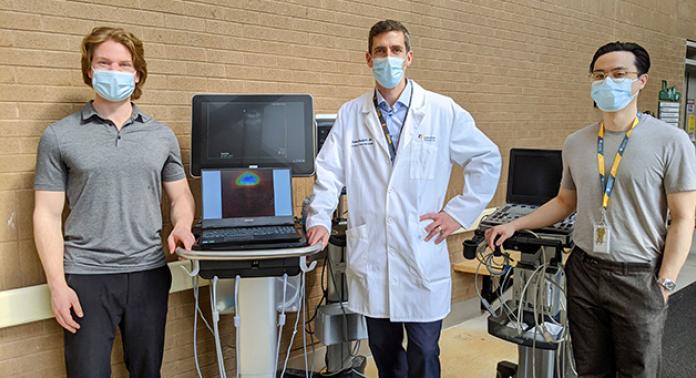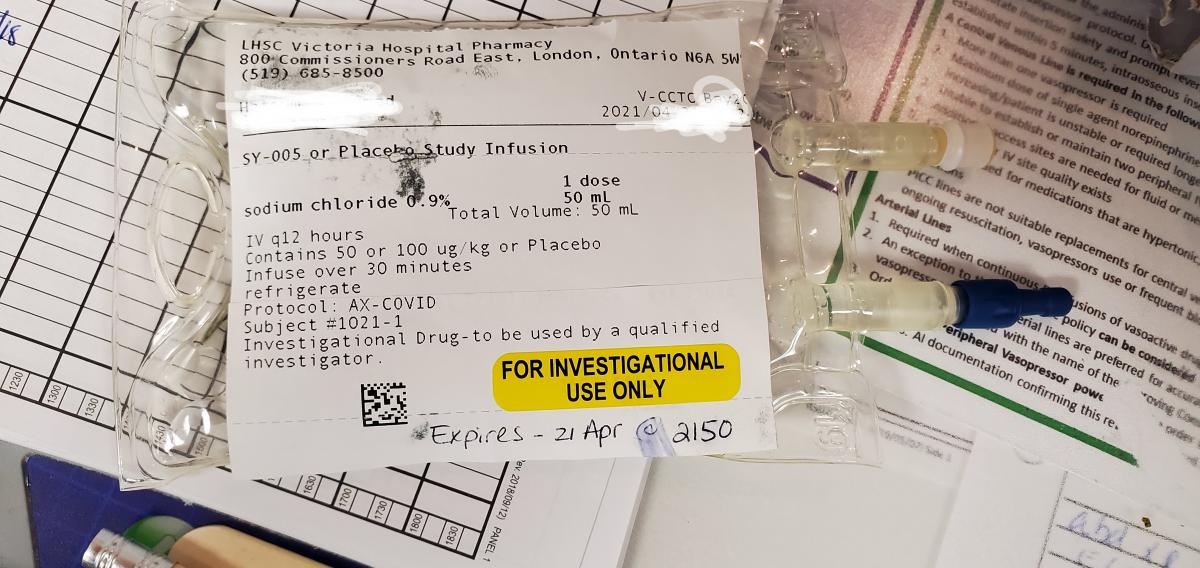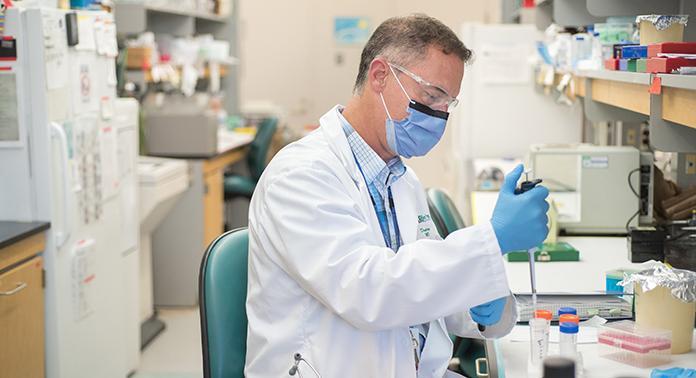

In early 2021, a team of researchers at Lawson developed and tested an artificial neural network for diagnosing COVID-19. The AI system was trained to learn and recognize patterns in ultrasound lung scans of patients with confirmed COVID-19 infections at London Health Sciences Centre (LHSC) and differentiate them from ultrasound scans of patients with other types of lung diseases and infections.

“The AI tool that we developed can detect patterns that humans cannot,” explained Dr. Robert Arntfield, Lawson Reseacher and Medical Director of the Critical Care Trauma Centre at LHSC. “Lung ultrasound scans of patients with COVID-19, as well as other lung diseases, produce a highly abnormal imaging pattern, but it is also impossible for physicians to tell apart different types of infections by looking at these images.”
Read more about this research here.

Meanwhile, another team at Lawson has been busy examining a discovery that has been more than ten years in the making: the use of a human protein to potentially treat patients with sepsis. Lawson Scientist Dr. Qingping Feng noticed that a human protein called annexin A5 showed positive results with sepsis back in 2007. Fast forward to 14 years to now, and this discovery could very well be the first ever viable treatment for sepsis patients, inlcuding severe COVID-19 patients who develop sepsis.
“With COVID initially, it is in the airway and then in the lungs, then from there the inflammatory response in fact spreads to the whole body,” says Dr. Feng, Ivey Chair in Molecular Technology at Western’s Schulich School of Medicine & Dentistry. “Sepsis causes major organ dysfunction and carries a high mortality unfortunately.”
Read more about the sepsis study here.
Understanding the COVID-19 virus has also been a key focus for scientists.
In one study, researchers at Lawson and Western University have teamed up with a local biotech company, Diagnostic Biochem Canada Inc. (DBC), to help us better understand COVID-19 and the body’s immune response to the infection. A published study followed 28 critically ill patients at LHSC; 14 who tested positive for COVID-19 and 14 who tested negative. They also followed 14 mildly ill non-hospitalized patients with COVID-19 and 14 healthy controls. The researchers tracked their body’s immune response and found that all COVID-19 positive patients had a robust antibody response to the infection, even those with poorer outcomes.
Read more about this ongoing work here.

Examining the impacts the COVID-19 pandemic has had on people’s mental health has also been a large focus for researchers at Lawson.
Scientists have been studying the impacts of the pandemic on young adults with mood and anxiety disorders, as well as the impacts to Veterans and their families, mothers and their babies, and there is also important research taking place surrounding the mental health of our front-line health care workers.
Lawson has also been recognized for its research surrounding the virus itself.

When the COVID-19 pandemic hit, Dr. Douglas Fraser, Pediatric Critical Care Physician at LHSC and Lawson Scientist, quickly sprang into action to begin researching the SARS-CoV-2 virus. As patients started being admitted to LHSC due to COVID-19, Dr. Fraser, who is also an associate professor of pediatrics at Western University, began a research study and became the first in the world to understand the immune response and several pathophysiological features of the virus. This work led to the critical understanding of how the virus was impacting patients and revealed potential avenues for therapy.
As a result of his outstanding advancements, WORLDiscoveries, the technology transfer and business development office for Western, Lawson and Robarts Research Institute, has announced that Dr. Douglas Fraser has been awarded as Innovator of the Year for the 2021 Vanguard Awards.
As the pandemic continues, Lawson’s commitment to patients and our community through research will also continue. The discoveries made surrounding COVID-19 will not only make a difference in the lives of many, but will extend and enhance other areas of research far beyond COVID-19.
Senior Media Relations Consultant
Communications & Public Engagement
T: 519-685-8500 ext. 73502
Celine.zadorsky@lhsc.on.ca